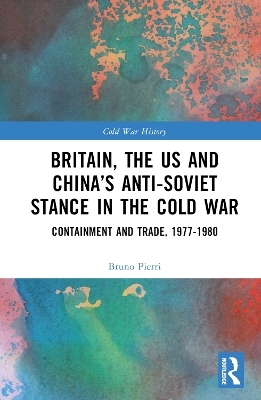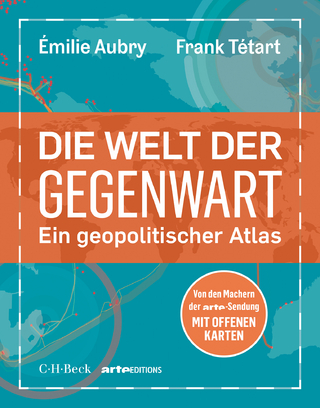
Britain, the US and China’s Anti-Soviet Stance in the Cold War
Containment and Trade, 1977-1980
Seiten
2023
Routledge (Verlag)
978-1-032-48660-4 (ISBN)
Routledge (Verlag)
978-1-032-48660-4 (ISBN)
This book shows how international trade was a key part of the classic Western policy of containment towards the Soviet Union in the Cold War in the late 1970s.
Trade and containment may summarise the new relation that communist China moulded with the capitalistic West in the late 1970s. Ideology had become less important and a rapprochement between the PRC (People’s Republic of China) and the Western powers over trade, with the purpose of isolating and weakening the common Russian rival, was practically unavoidable. Within a relatively short span of time the balance of power in the Indo-Pacific area had been reversed. Simply put, Beijing’s market was too big to be ignored and the Atlantic allies collaborated, sometimes even competing with each other, to allow China access to the centres of world finance. However, the Western powers had not realised that Beijing would never pursue alignment with them. On the contrary, the increased trading and financial linkage with capitalistic countries gave China room to manoeuvre, enabling it to play the Western states off against each other.
This book will be of much interest to students of Cold War Studies, Chinese history, foreign policy and international relations.
Trade and containment may summarise the new relation that communist China moulded with the capitalistic West in the late 1970s. Ideology had become less important and a rapprochement between the PRC (People’s Republic of China) and the Western powers over trade, with the purpose of isolating and weakening the common Russian rival, was practically unavoidable. Within a relatively short span of time the balance of power in the Indo-Pacific area had been reversed. Simply put, Beijing’s market was too big to be ignored and the Atlantic allies collaborated, sometimes even competing with each other, to allow China access to the centres of world finance. However, the Western powers had not realised that Beijing would never pursue alignment with them. On the contrary, the increased trading and financial linkage with capitalistic countries gave China room to manoeuvre, enabling it to play the Western states off against each other.
This book will be of much interest to students of Cold War Studies, Chinese history, foreign policy and international relations.
Bruno Pierri is an adjunct professor in the Department of Political and Social Sciences at the University of Bologna and has a PhD in History of extra-European countries from the University of Pisa, Italy.
Introduction 1. The Nixon Legacy 2. The Road to the Third Plenum 3. The Policy of Adjustment 4. Afghanistan and Arms Sales Conclusions
| Erscheinungsdatum | 08.08.2023 |
|---|---|
| Reihe/Serie | Cold War History |
| Verlagsort | London |
| Sprache | englisch |
| Maße | 156 x 234 mm |
| Gewicht | 453 g |
| Themenwelt | Geschichte ► Allgemeine Geschichte ► Zeitgeschichte |
| Sozialwissenschaften ► Politik / Verwaltung ► Europäische / Internationale Politik | |
| Sozialwissenschaften ► Politik / Verwaltung ► Staat / Verwaltung | |
| Wirtschaft ► Volkswirtschaftslehre ► Makroökonomie | |
| ISBN-10 | 1-032-48660-0 / 1032486600 |
| ISBN-13 | 978-1-032-48660-4 / 9781032486604 |
| Zustand | Neuware |
| Informationen gemäß Produktsicherheitsverordnung (GPSR) | |
| Haben Sie eine Frage zum Produkt? |
Mehr entdecken
aus dem Bereich
aus dem Bereich
Gewalt, Umwelt, Identität, Methode
Buch | Softcover (2024)
Spector Books OHG (Verlag)
36,00 €


